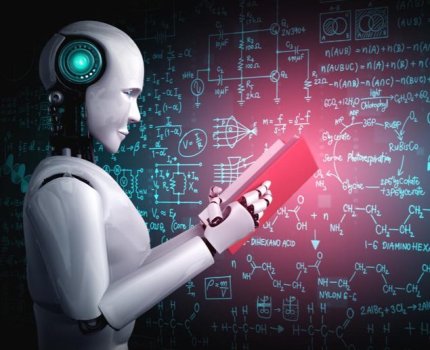By any measure, artificial intelligence (AI) has become big business.
According to Gartner, customers worldwide will spend $62.5 billion on AI software in 2022. And it notes that 48 percent of CIOs have either already deployed some sort of AI software or plan to do so within the next twelve months.
All that spending has attracted a huge crop of startups focused on AI-based products. CB Insights reported that AI funding hit $15.1 billion in the first quarter of 2022 alone. And that came right after a quarter that saw investors pour $17.1 billion into AI startups. Given that data drives AI, it’s no surprise that related fields like data analytics, machine learning and business intelligence are all seeing rapid growth.
But what exactly is artificial intelligence? And why has it become such an important — and lucrative — part of the technology industry?
What Is Artificial Intelligence?
In some ways, artificial intelligence is the opposite of natural intelligence. If living creatures can be said to be born with natural intelligence, man-made machines can be said to possess artificial intelligence. So from a certain point of view, any “thinking machine” has artificial intelligence.
And in fact, one of the early pioneers of AI, John McCarthy, defined artificial intelligence as “the science and engineering of making intelligent machines.”
In practice, however, computer scientists use the term artificial intelligence to refer to machines doing the kind of thinking that humans have taken to a very high level.
Computers are very good at making calculations — at taking inputs, manipulating them, and generating outputs as a result. But in the past they have not been capable of other types of work that humans excel at, such as understanding and generating language, identifying objects by sight, creating art, or learning from past experience.
But that’s all changing.
Today, many computer systems have the ability to communicate with humans using ordinary speech. They can recognize faces and other objects. They use machine learning techniques, especially deep learning, in ways that allow them to learn from the past and make predictions about the future.
So how did we get here?
Continue reading: https://www.eweek.com/enterprise-apps/what-is-artificial-intelligence/
According to Gartner, customers worldwide will spend $62.5 billion on AI software in 2022. And it notes that 48 percent of CIOs have either already deployed some sort of AI software or plan to do so within the next twelve months.
All that spending has attracted a huge crop of startups focused on AI-based products. CB Insights reported that AI funding hit $15.1 billion in the first quarter of 2022 alone. And that came right after a quarter that saw investors pour $17.1 billion into AI startups. Given that data drives AI, it’s no surprise that related fields like data analytics, machine learning and business intelligence are all seeing rapid growth.
But what exactly is artificial intelligence? And why has it become such an important — and lucrative — part of the technology industry?
What Is Artificial Intelligence?
In some ways, artificial intelligence is the opposite of natural intelligence. If living creatures can be said to be born with natural intelligence, man-made machines can be said to possess artificial intelligence. So from a certain point of view, any “thinking machine” has artificial intelligence.
And in fact, one of the early pioneers of AI, John McCarthy, defined artificial intelligence as “the science and engineering of making intelligent machines.”
In practice, however, computer scientists use the term artificial intelligence to refer to machines doing the kind of thinking that humans have taken to a very high level.
Computers are very good at making calculations — at taking inputs, manipulating them, and generating outputs as a result. But in the past they have not been capable of other types of work that humans excel at, such as understanding and generating language, identifying objects by sight, creating art, or learning from past experience.
But that’s all changing.
Today, many computer systems have the ability to communicate with humans using ordinary speech. They can recognize faces and other objects. They use machine learning techniques, especially deep learning, in ways that allow them to learn from the past and make predictions about the future.
So how did we get here?
Continue reading: https://www.eweek.com/enterprise-apps/what-is-artificial-intelligence/

